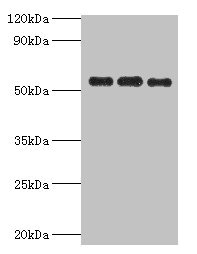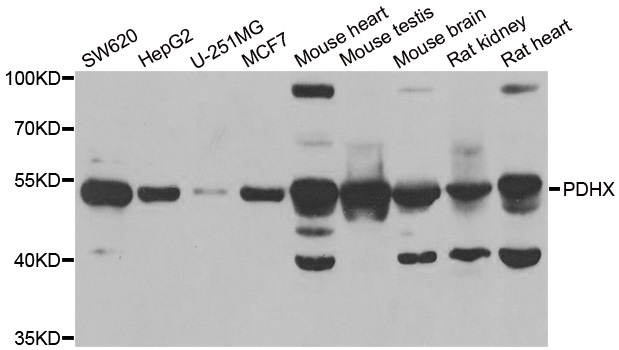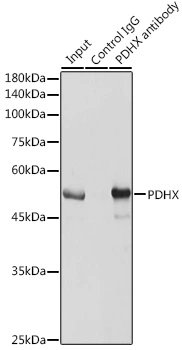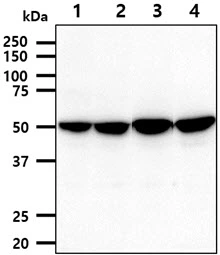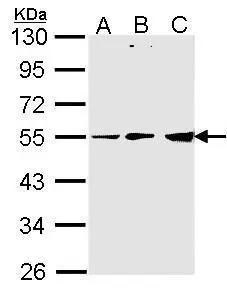
Sample (30 ug of whole cell lysate) A: A431 (GTX27909) B: H1299 C: Hela 10% SDS PAGE GTX106352 diluted at 1:1000
PDHX antibody [C3], C-term
GTX106352
ApplicationsWestern Blot
Product group Antibodies
ReactivityHuman
TargetPDHX
Overview
- SupplierGeneTex
- Product NamePDHX antibody [C3], C-term
- Delivery Days Customer9
- Application Supplier NoteWB: 1:500-1:3000. *Optimal dilutions/concentrations should be determined by the researcher.Not tested in other applications.
- ApplicationsWestern Blot
- CertificationResearch Use Only
- ClonalityPolyclonal
- Concentration0.75 mg/ml
- ConjugateUnconjugated
- Gene ID8050
- Target namePDHX
- Target descriptionpyruvate dehydrogenase complex component X
- Target synonymsDLDBP, E3BP, OPDX, PDHXD, PDX1, proX, pyruvate dehydrogenase protein X component, mitochondrial, dihydrolipoamide dehydrogenase-binding protein of pyruvate dehydrogenase complex, lipoyl-containing pyruvate dehydrogenase complex component X, pyruvate dehydrogenase complex, E3-binding protein subunit, pyruvate dehydrogenase complex, lipoyl-containing component X
- HostRabbit
- IsotypeIgG
- Protein IDO00330
- Protein NamePyruvate dehydrogenase protein X component, mitochondrial
- Scientific DescriptionThe PDHX gene encodes component X of the pyruvate dehydrogenase (PDH) complex. For a detailed description of the pyruvate dehydrogenase complex, see MIM 300502. The mammalian PDH complex differs from that in E. coli and from the other mammalian alpha-keto acid dehydrogenases by the presence of a 53-kD protein called protein X. Component X binds to the E3 (MIM 238331) component of the PDH complex (Robinson et al., 1990 [PubMed 2112155]; Aral et al., 1997 [PubMed 9399911]).[supplied by OMIM]
- ReactivityHuman
- Storage Instruction-20°C or -80°C,2°C to 8°C
- UNSPSC41116161

